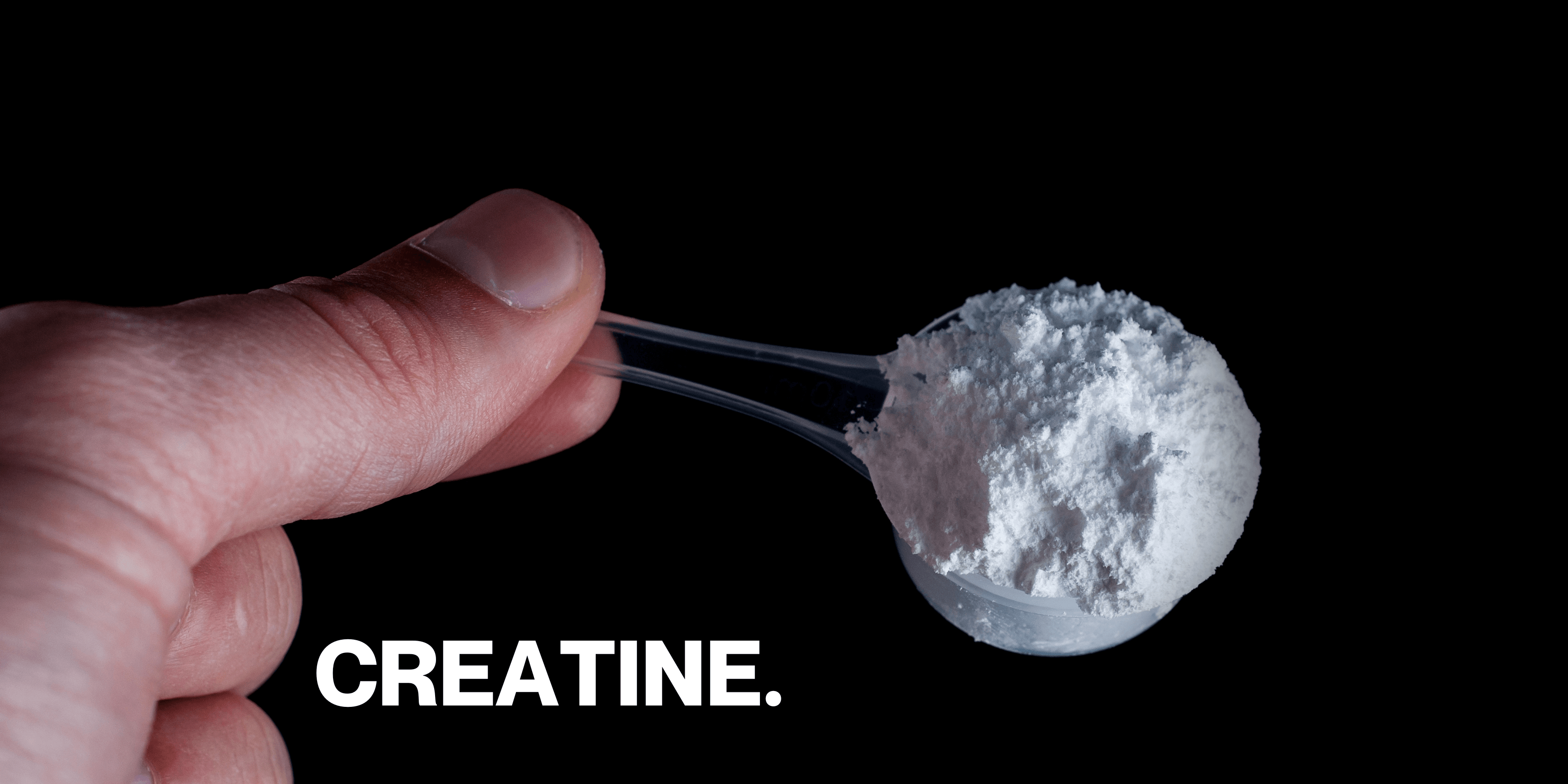Want to get the most out of your workouts? Then protein powder might be the perfect addition to your routine. In this article, you’ll discover how protein powder works and what types there are, so you can make the right choice for your goals.
Table of contents
- What is protein powder?
- Benefits of Protein Powder for Workouts
- Types of protein powder
- How does protein powder work for muscle recovery and muscle growth?
- The Right Timing of Protein Powder Intake
- How Much Protein Powder Do You Need for Your Workouts?
- Popular Protein Powder Brands and Their Quality
- Protein powder as part of a balanced diet
- Side effects and possible risks of protein powder
- Conclusion: Is protein powder suitable for your workouts?
What is protein powder?
Protein powder is a dietary supplement that provides a concentrated source of protein, usually from milk, soy, or other plant sources. The powder is designed to mix easily into liquids, such as water or milk, and can be used in shakes, smoothies, or even as an ingredient in various recipes. It is popular among athletes, bodybuilders, and anyone looking to increase their protein intake without having to eat large amounts of food. Due to its convenient form, protein powder is a convenient way to increase protein intake, especially after a workout when the body needs extra nutrients.
The foundation of protein powder lies in amino acids, the building blocks of protein. Protein powder can contain different types of protein depending on the source. Whey protein, for example, is one of the fastest absorbing protein sources and is popular among athletes for post-workout recovery. Casein protein, on the other hand, is slower to digest and can help provide a steady supply of amino acids to the body, which can be beneficial for overnight recovery.
Using protein powder can be a valuable addition to the diet of individuals looking to increase muscle mass or improve recovery after intense workouts. Not only does it provide a convenient way to consume protein, it can also help achieve specific fitness goals.
Benefits of Protein Powder for Workouts
Protein powder offers a number of benefits for people who exercise regularly. One of the most important benefits is promoting muscle recovery. After an intense workout, your muscles can become damaged, and protein powder provides your body with the protein it needs to repair this damage quickly. This can lead to a faster recovery time, allowing you to get back to full training sooner.
In addition, protein powder can help build muscle mass. When you exercise, especially with strength training, micro-damage occurs in the muscles. Consuming protein powder after a workout can ensure that the muscles get the right nutrients to grow stronger and bigger. This is especially important for athletes and bodybuilders who are focused on increasing their muscle mass and strength.
In addition, protein powder can also contribute to weight management. Protein has a satiating effect, which means it keeps you feeling full for longer. This can help to reduce unwanted snacking and support you in maintaining a healthy diet. Regularly adding protein powder to your meals or snacks can help you achieve your fitness goals, whether you want to lose weight, build muscle, or simply live a healthier lifestyle.
Types of protein powder
- Whey Protein: Fast absorbing, ideal for use after a workout.
- Casein protein: Slowly digestible, suitable for long-term release of amino acids.
- Pea, Hemp, Oat, Rice Protein: Plant-based, ideal for vegetarians and vegans, with health benefits including lowering cholesterol.
How does protein powder work for muscle recovery and muscle growth?
Protein powder plays a crucial role in the process of muscle repair and growth. During exercise, especially strength training, small tears occur in the muscle fibers. This is a normal part of the process of muscle growth. When you consume protein powder, it provides your body with the necessary amino acids that help repair these tears.
The amino acids in protein powder, such as leucine, isoleucine and valine, are essential for stimulating muscle protein synthesis. By taking protein powder after your workout, you ensure that your muscles quickly receive the nutrients they need to recover and grow stronger.
Additionally, using protein powder can help prevent muscle breakdown. During periods of intense exercise or calorie restriction, the body can begin to break down muscle tissue for energy. By including adequate protein, including protein powder, in your diet, you can minimize this muscle breakdown and ensure that your body focuses on building and maintaining muscle mass.
The Right Timing of Protein Powder Intake
The timing of your protein powder intake is essential for achieving optimal results. Many experts recommend taking protein powder within 30 minutes to 2 hours after your workout. This is often referred to as the “anabolic window,” a period of time when your muscles are particularly receptive to nutrients. Taking protein powder during this window will maximize the benefits for muscle recovery and growth. In addition to taking protein powder post-workout, it can also be beneficial to consume protein powder before your workout, especially if you are planning an intense workout. This can help to increase your energy levels and ensure that you have sufficient amino acids available during your workout. Some athletes choose to incorporate protein powder into their breakfast or as a snack to ensure a consistent supply of protein throughout the day. It is important to tailor your protein powder intake to your personal routine and goals. For example, if you have a long workout or are doing intense strength training, it may be beneficial to adjust your intake accordingly. It may also be wise to calculate your protein needs based on your body weight and activity level to ensure you get enough protein for optimal recovery and growth.
How Much Protein Powder Do You Need for Your Workouts?
The amount of protein powder you need depends on several factors, including your body weight, activity level, and fitness goals. As a general guideline, it is often recommended to consume between 1.2 and 2.2 grams of protein per kilogram of body weight per day, depending on the intensity of your training. For most athletes, consuming 1.6 grams of protein per kilogram of body weight is often sufficient to support muscle growth and recovery. When using protein powder, it is important to look at the protein content per serving of the specific product you are using. Most protein powders contain between 20 and 30 grams of protein per scoop. This means that if, for example, you need 1.6 grams of protein per kilogram of body weight and you weigh 70 kilograms, you should consume approximately 112 grams of protein per day. This can come from both food and protein powder. It is also important to remember that protein powder is a supplement to a balanced diet. It is important to continue to get enough protein from whole foods, such as meat, fish, eggs, dairy, and plant sources. Protein powder should be seen as a convenient way to increase your intake, especially during periods when you are struggling to meet your protein needs.
Popular Protein Powder Brands and Their Quality
There are many brands of protein powder on the market, and it’s important to choose a product that is high-quality and meets your personal needs. When choosing a protein powder, it’s important to pay attention to the ingredient list. Avoid products that are high in added sugars, artificial flavors, or fillers. Instead, choose products that offer a high concentration of protein and contain as few unwanted ingredients as possible. It’s also helpful to look at the nutritional information to see how much protein and other nutrients you’re getting per serving. Additionally, it’s a good idea to check out ratings and reviews from other users. This can help you gain more insight into the taste, solubility, and effectiveness of the protein powder. Ultimately, choosing the right protein powder is a personal decision that depends on your taste preferences, dietary restrictions, and fitness goals.
Protein powder as part of a balanced diet
Protein powder can be a valuable addition to a balanced diet, but it’s important not to consider it a replacement for whole foods. A diet rich in fruits, vegetables, whole grains, healthy fats, and lean proteins is essential for optimal health and performance. Protein powder can help you reach your protein goals, but it should be used as a supplement to a diverse and nutritious diet. It’s also important to spread your protein intake throughout the day. Instead of relying on one large dose of protein powder, it may be better to consume several smaller servings throughout the day. This can help provide a steady supply of amino acids to your muscles, which promotes recovery and growth. Finally, it’s essential to stay well-hydrated, especially when consuming additional protein. Protein requires water to be properly metabolized, and increased protein intake can put more strain on your kidneys. Make sure to drink plenty of water, especially around your workouts and when using protein powder.
Side effects and possible risks of protein powder
While protein powder has many benefits, there are also some side effects and risks to consider. A common side effect is digestive upset, such as bloating, gas, or diarrhea. This can be especially common in people who are lactose intolerant and are taking whey protein. It’s important to opt for a lactose-free option if you’re sensitive to lactose or consider plant-based protein powders like soy or pea protein. Additionally, consuming too much protein powder can put a strain on your kidneys, especially in people with existing kidney problems. It’s important to keep your protein intake within a healthy range and make sure you’re drinking plenty of water to support your kidneys. Consult a doctor or dietitian if you’re concerned about your protein intake or have specific health concerns. Finally, it’s important to remember that protein powder is a supplement, not a replacement for a healthy diet. It’s crucial to maintain a balanced diet and use protein powder as a convenient way to increase your intake, not as your only source of protein. By maintaining a varied diet, you minimize the risks of side effects and ensure optimal health.
Conclusion: Is protein powder suitable for your workouts?
In conclusion, protein powder can be an excellent addition for anyone looking to optimize their workouts, whether you’re a serious athlete or simply looking to achieve your fitness goals. It offers a convenient and efficient way to increase your protein intake, which is crucial for muscle repair and growth. By choosing the right types of protein powder and taking it at the right time, you can maximize the benefits and improve your performance. However, it’s important to view protein powder as a supplement to a balanced diet and not as a replacement for whole foods. Make sure you’re getting enough protein from a variety of sources and consider your personal needs and goals. If you’re considering adding protein powder to your routine, it’s a good idea to research your options and choose high-quality products. Also, be aware of potential side effects and make sure you keep your protein intake within a healthy range. With the right approach, protein powder can be a valuable tool in helping you get the most out of your workouts and achieve your fitness goals.




Leave a comment
All comments are moderated before being published.
This site is protected by hCaptcha and the hCaptcha Privacy Policy and Terms of Service apply.